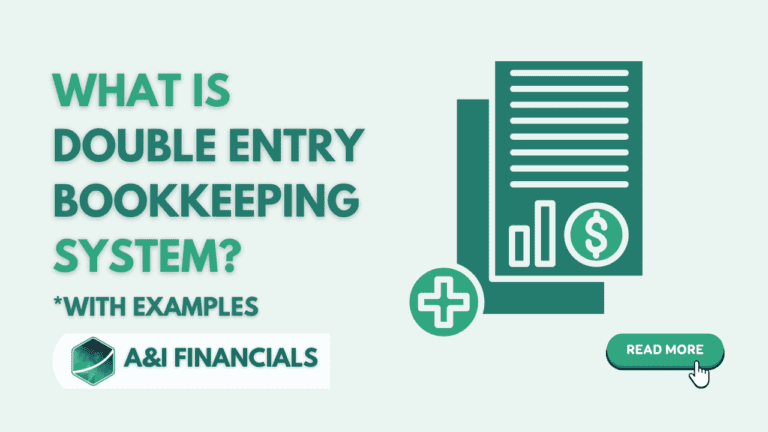Is It Tough Being a Bookkeeper for a Small Company?
“Is it tough being a bookkeeper for a small company?” Imagine steering a small ship through rough waters. In the realm of small businesses, a bookkeeper isn’t just tallying numbers. They navigate daily financial challenges, steering the business toward success. Each ledger entry isn’t just a figure; it’s a critical move toward stability. Curious about this vital role? Strap in. We’re diving deep into the dynamic world of small business bookkeeping, where every day brings challenges and opportunities to make a significant impact.
Role of a Bookkeeper
Definition and Primary Responsibilities
“Is it tough being a bookkeeper for a small company?” Absolutely, and here’s why. A bookkeeper in a small company is far more than just a number cruncher. They are the financial backbone that keeps the company’s heartbeat steady and strong.
This role encompasses a variety of tasks: managing daily accounting transactions, from invoicing clients to handling the payroll, ensuring every transaction is accurately logged, and preparing financial statements that are crucial for strategic decisions. They ensure no penny goes unaccounted for, often in a high-pressure environment.
Key Skills and Qualifications Required
What does it take to thrive as a bookkeeper? Precision, patience, and a deep understanding of accounting software like QuickBooks and Xero are essential. While an academic background in accounting or finance is beneficial, the real game-changers are a keen eye for detail and a calm demeanor, especially vital when the numbers just don’t seem to match up.
Daily Tasks and Routines
Picture starting your day with a coffee in one hand and a stack of transactions to reconcile in the other. The day ends with the generation of financial reports that could potentially redirect the company’s future strategies. Yes, it’s as hectic as it sounds. Bookkeeping in a small company means you are constantly spinning plates, managing everything from payroll processing to accounts receivable and payable. No two days are the same, each bringing its own set of unpredictable challenges.
Challenges Faced by Bookkeepers in Small Companies
Limited Resources and Tools
First up, the challenge of limited tools. Unlike their counterparts in larger corporations who have access to cutting-edge systems, bookkeepers in small companies often work with more basic software. Sometimes, it’s their sheer determination that keeps the books balanced.
Multitasking and Diverse Responsibilities Beyond Bookkeeping
“Is it tough being a bookkeeper for a small company?” That’s certainly true, especially when you’re expected to wear a variety of hats. Imagine being in the middle of reconciling accounts and suddenly you’re needed to resolve a customer issue. This versatility is indispensable yet can stretch a bookkeeper thin.
Keeping Up with Changing Financial Regulations and Compliance Issues
Financial regulations are constantly evolving, and keeping up can be daunting. Compliance is not just a part of the job—it’s crucial for keeping the business on the right side of the law.
Handling Cash Flow Issues and Financial Uncertainty in Small Businesses
Navigating through financial uncertainty is a regular part of the job. Ensuring there is enough cash to cover the bills becomes a daily challenge, akin to steering a ship through stormy seas.
Managing Client Expectations and Communications
Explaining complex financial data to business owners without a financial background is another key role. Effective communication is essential to ensure that everyone understands the financial health of the business.
Dependence on the Financial Health of the Company
The overall financial health of the company heavily influences a bookkeeper’s daily work. In difficult times, the pressure intensifies as they become central to navigating through financial turbulence.
Technology and Tools
Importance of Software Proficiency
In today’s digital age, proficiency in accounting software is not just beneficial; it’s a necessity. It separates efficient operations from chaotic ones.
Automation of Tasks and Its Impact
Automation can be a game-changer, allowing bookkeepers to focus on more strategic tasks rather than mundane data entry. However, adapting to new technology requires both time and investment.
Challenges with Adopting New Technologies or Software
The pace of technological change is relentless. Staying updated requires continuous learning, which can sometimes be overwhelming but ultimately rewarding.
Relationships and Communication
Interacting with Owners and Other Team Members
Strong interpersonal relationships are critical. Bookkeepers must keep clear and open communication lines, not just with the owner but with the entire team.
Communication Skills Necessary for Explaining Financial Concepts
Not everyone understands the nuances of finance. A bookkeeper’s ability to demystify complex concepts for others is crucial for team alignment.
Navigating Conflicts or Discrepancies in Financial Reports
When financial discrepancies arise, the bookkeeper’s skills in mediation and problem-solving come to the forefront. Handling these situations requires a calm approach and sharp analytical skills.
Professional Development
Opportunities for Growth and Training Within a Small Company
Although small companies may not have large-scale training programs, they often provide unique opportunities to take on new responsibilities, facilitating personal and professional growth.
Networking with Other Professionals
Networking isn’t just about building connections; it’s a vital avenue for sharing knowledge and finding opportunities that can propel a bookkeeper’s career forward.
Access to Professional Development Resources and How It Affects Their Role
Access to professional development resources, though sometimes limited, is crucial for a bookkeeper’s continuous adaptation and growth in a rapidly changing business environment.
Advantages of Being a Bookkeeper in a Small Company
Closer Relationships with the Business Owner and Team
The smaller the team, the closer the relationships. This closeness can make the workplace feel more like a family, fostering a strong community spirit.
Greater Visibility of the Impact of Their Work on the Business
In a small company, every task a bookkeeper undertakes has a visible impact, making their role both critical and satisfying.
Opportunities for Taking on Varied Roles and Expanding Skill Set
The variety of tasks available in a small company provides a rich ground for bookkeepers to broaden their skills and expertise, making every day a learning opportunity.
Financial Impact
The Role of the Bookkeeper in Financial Planning and Decision-Making
Bookkeepers play a pivotal role in shaping the financial strategies that underpin business growth and sustainability.
Contribution to the Long-Term Financial Strategy of the Company
Their insights and financial reports often influence critical business decisions, from budgeting to strategic forecasting.
Impact on Tax Preparation and Compliance
Effective bookkeeping ensures that businesses stay compliant with tax laws, avoiding penalties and fostering an atmosphere of trust and integrity.
Job Satisfaction and Work-Life Balance
Work Environment and Culture in Small Companies
The work environment in small companies is often less formal and more flexible, significantly enhancing job satisfaction and personal well-being.
Job Security and Stability Considerations
Although job security can sometimes be a concern in volatile markets, it also serves as a motivator for bookkeepers to excel and secure their position within the company.
Work-Life Balance Challenges Specific to Small Companies
Balancing work and life can be challenging when you are a key member of a small team, but it is often more manageable with flexible schedules and supportive colleagues.
“Is it tough being a bookkeeper for a small company?” In addition to its challenges, it also offers a wealth of rewards and opportunities for personal and professional development. If you find yourself navigating the complexities of small business finance, consider the expert services at A&I Financials. We provide comprehensive bookkeeping services tailored to your unique needs, ensuring that your finances are meticulously managed so you can focus on growing your business. Explore our services and let us take the financial reins, making your management effortless.
How A&I Financials Can Help
- Expert Support and Guidance: Our team of experienced bookkeepers provides not only support but also guidance on best practices in financial management. This means less guesswork for you and more strategic decision-making.
- Access to Advanced Tools and Technologies: We equip our clients with the latest in accounting software and technology, reducing the burden of manual tasks and streamlining your accounting processes. This allows you to focus on critical aspects of business growth and customer relations.
- Customized Services Tailored to Your Needs: At A&I Financials, we recognize that each small business is unique. We offer customized bookkeeping services that cater specifically to your business requirements, ensuring that your financial operations align perfectly with your business goals.
- Compliance and Regulatory Assistance: Navigating financial regulations can be daunting. Our experts stay abreast of the latest financial regulations to ensure your business remains compliant, thus avoiding costly penalties and legal issues.
- Training and Professional Development: We believe in empowering our clients through education. A&I Financials offers training sessions and resources that help you and your staff stay knowledgeable and skilled, fostering ongoing professional development within your company.
- Enhanced Financial Reporting and Insights: With our sophisticated analysis tools, we provide deeper insights into your finances, enabling better understanding and more informed decision-making. This leads to more effective financial planning and increased profitability.
- Scalable Services: As your business grows, so do your financial needs. Our services scale with your company, providing more comprehensive support as you expand, ensuring that your financial foundation remains solid no matter the size of your operation.
Your Partner in Growth
“Is it tough being a bookkeeper for a small company?” With A&I Financials by your side, it doesn’t have to be. We take on the heavy lifting of financial management so that you can focus on what you do best—running your business. Our team is here to support you every step of the way, helping to ensure that your financial operations are as efficient and painless as possible.
Let A&I Financials be your partner in navigating the complexities of small business finance. Explore our services today and experience how we can make your financial management effortless, allowing you to concentrate on growing your business and achieving long-term success.
FAQS
Yes, being a bookkeeper for a small company can be challenging due to limited resources, the need to multitask across various financial tasks, and the pressure to stay updated with financial regulations. However, it also offers unique opportunities for growth and a close-knit working environment.
The main challenges include handling a wide range of responsibilities beyond basic bookkeeping, such as HR tasks and customer service, managing unpredictable cash flows, and dealing with the complexities of financial compliance on a limited budget. These factors require a bookkeeper to be highly adaptable and resourceful.
Bookkeepers in small companies often face challenges such as limited resources, the need for multitasking, staying updated with financial regulations, managing cash flow, and ensuring compliance.
Yes, proficiency in accounting software like QuickBooks or Xero is crucial for efficiency and accuracy in bookkeeping tasks. It helps streamline processes and reduces the likelihood of errors.
Bookkeepers in small companies often enjoy closer relationships with team members and management, greater visibility of the impact of their work, and opportunities to take on varied roles which can enhance their skills and career growth.







